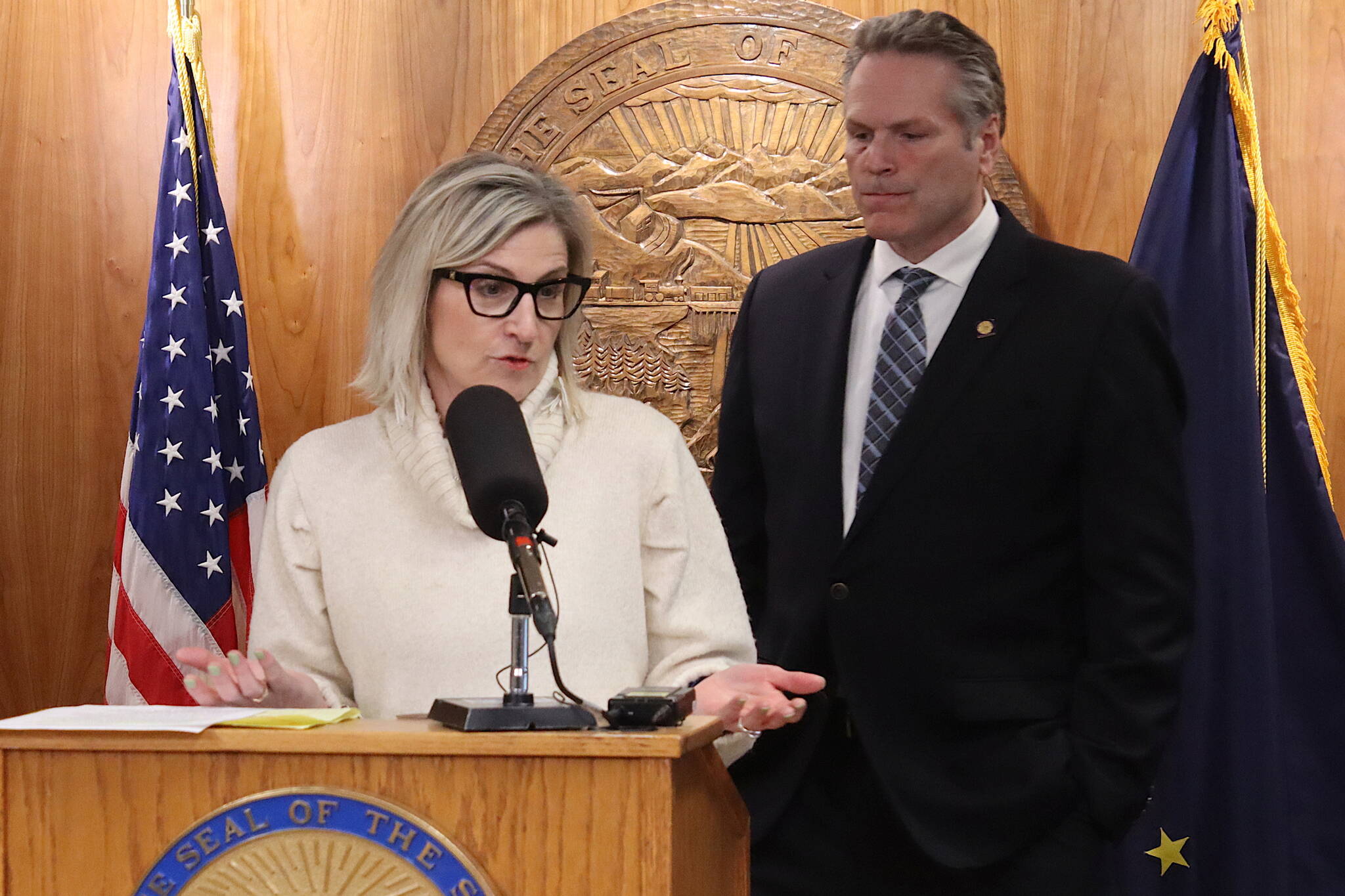The State of Alaska owes the Kenai Peninsula Borough School District almost $10 million in COVID-19 relief funds and is now considered a high-risk grantee, according to a letter sent from the U.S. Department of Education on Wednesday.
The federal government in that letter asserts that the Alaska Department of Education and Early Development is out of compliance with the requirements the state agreed to when it accepted funding through the federal American Rescue Plan Act, which brought in almost $380 million for Alaska schools.
Alaska is the only U.S. state that hasn’t met those requirements, or explained how they plan to pay back roughly $29 million to the four school districts it says were underfunded.
Members of the Senate majority caucus on Thursday said the federal “high-risk” designation puts an additional $425 million worth of federal funding for Alaska schools at risk.
The federal government estimates that the state owes the Anchorage School District $16.6 million, KPBSD $9.7 million, the Fairbanks North Star Borough School District $3.1 million and the Juneau Borough School District $204,000.
In order to receive federal COVID-19 relief funds, states were required to comply with “maintenance of equity” provisions intended to support school districts serving a large number of low-income students.
Twenty of KPBSD’s 42 schools are eligible for federal funding under Title I, Part A of the Elementary and Secondary Education Act. That legislation provides financial aid to schools with high percentages of children from low-income families.
“The ARP Act State maintenance of equity requirements help ensure that State funding supports LEAs with high concentrations of poverty and the students who have been subject to longstanding opportunity gaps in our education system and experienced the greatest impact from the COVID-19 pandemic,” the U.S. Department of Education wrote in a March 18 letter to DEED.
DEED on Thursday pushed back on the federal government’s statement that it has not complied with those requirements, saying it “disputes that claim in the strongest possible terms.” Commissioner Deena Bishop called the designation “an incredibly surprising solution” and the state funded school districts the way it always has — using a universally applied funding formula based on student enrollment.
“Since Alaska’s school funding formula has already been found to comply with the federal disparity test and to provide equitable distribution, the State asserts that it has already met the requirement and no additional funds are needed to be distributed,” Bishop is quoted as saying in the release.
The state was first warned last December that it was in danger of being noncompliant with the maintenance of equity requirements and that Alaska could become designated as a “high risk” grantee if it did not resolve issues identified by the federal Department of Education.
The State of Alaska universally applies a formula to determine how much money school districts receive from the state each year. The formula takes the number of students in a school district and then adjusts it for factors like school size and number of intensive needs students. The adjusted number is then multiplied by Alaska’s base student allocation to determine how much state money the district will get. During the pandemic, multiple school districts — including the Kenai Peninsula Borough School District — saw significant drops in student enrollment.
According to KPBSD, an average of 8,330 students were attending district schools last October, when the district conducts a 20-day count to determine district enrollment. That’s up from a pandemic low of 7,756 students in 2021, but down from the pre-pandemic level of 8,680 in 2019.
Lower student enrollment means less state money for school districts by design with the state’s funding formula. That decrease in state money, the federal government says, makes Alaska out of compliance with the requirement that states not decrease funding for school districts and then make up that difference with the federal grant money.
Löki Tobin, an Anchorage Democrat who chairs the Senate Education Committee, said in a Thursday press release the news that Alaska needs to pay school districts an additional $29 million comes as the state is already struggling to provide schools with the financial support needed.
“Despite being assured by the Department and Commissioner that a resolution was in the works, the state has failed its duties,” Tobin is quoted as saying.
KPBSD Superintendent Clayton Holland has previously said that the outstanding $9.7 million, if received, would be a “game changer.” The news comes as the district faces a roughly $13.7 million deficit for the upcoming fiscal year. Holland on Tuesday said Bishop told him Monday that the department is “in negotiations” with the federal government and would likely hear back in the next month about what happens next.
The Senate Education Committee announced Thursday that, in response to the high-risk designation, it will hold an emergency meeting with DEED staff to learn more about what actions preceded the designation and how the department plans to move forward.
Reach reporter Ashlyn O’Hara at ashlyn.ohara@peninsulaclarion.com.

